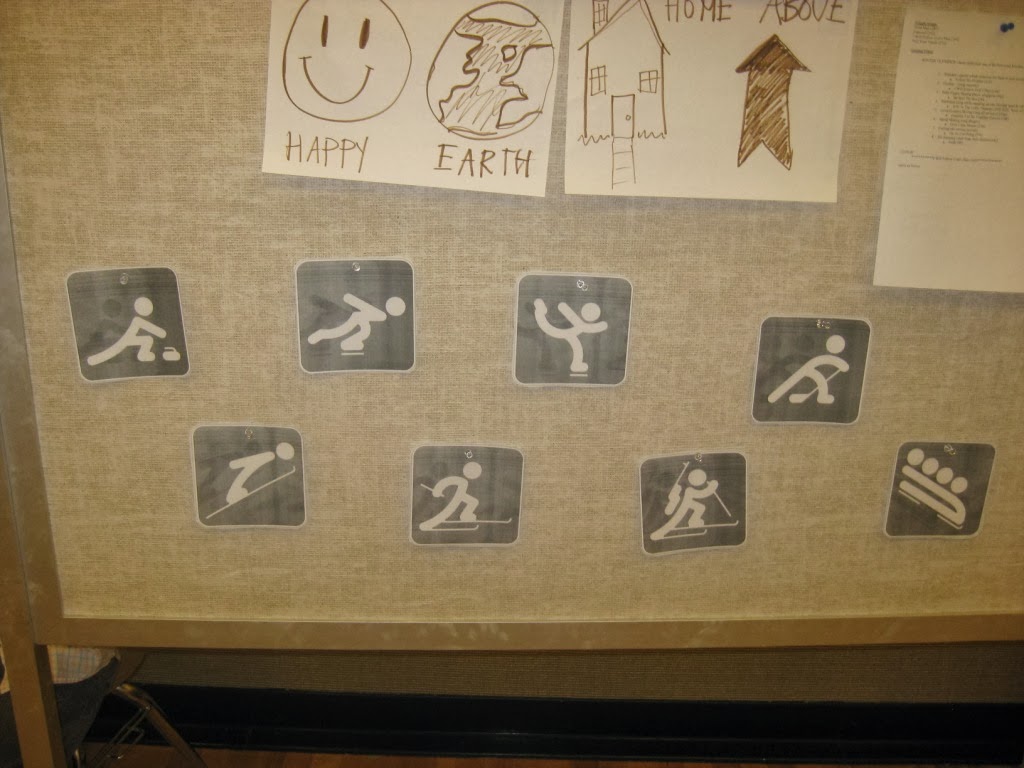This was brand new this year--a winter counterpart to my Summer Olympics! The kids were really into it, especially since it coincided with the Olympics in Sochi.
- icons to represent 8-10 of the events featured in the Winter Olympics. I used these:
- Curling
- Ski Jumping
- Speed Skating
- Cross-Country Skiing
- Figure Skating
- Biathalon
- Ice Hockey
- Bobsledding
- (I would definitely add 1-2 more next time--I used up every event in Junior Primary!)
- list of 8-10 songs (one for each event)
- a pink poster with a picture of a girl
- a blue poster with a picture of a boy
- tape/pins to hang the icons on your board
Set up:
- Pin/tape your icons onto the board--easy as that!
- Have your boy/girl posters accessible.
Game play:
- Announce that the Primary Winter Olympics are now in session!
- describe each event they will be participating in (the actual event, not what they're going to be doing in Primary)
- Have a child come up and pick an icon. Name the event ("Ooh, speed skating!"), and then describe how the Primary will "compete" in this event. Here's what I did for each of my events:
- Curling = Do As I'm Doing (p. 276), "sweeper" actions
- you'll almost certainly have to explain curling and the sweepers, so make sure you know what you're talking about!
- Ski Jumping = sing the entire song with a crescendo. Start off very quietly and end fortissimo (like a jumper preparing to jump and then launching).
- I also had the kids crouch down low as we began singing, then slowly stand up and ended in a "ski jump" position when we hit fortissimo.
- Speed Skating = sing the song as fast as possible
- Cross-Country Skiing = sing all verses (make sure your song has more than one!)
- Figure Skating = boys/girls sing (this is where the posters come in)
- explain that this is pairs figure skating, where a man & woman skate together, but not always doing the same thing at the same time. For our Olympics, the boys and girls will be singing the same song, but not always at the same time.
- hold up the boy sign for the boys to sing, girl for girls, or both together
- Biathalon = do two things at once! Sing a song plus do some other action.
- For Junior I had them jump up and down on one foot while singing
- For Senior I had them pat their head and rub their belly while singing
- Ice Hockey = sing staccato (like the puck shooting around the ice)
- Bobsledding = either you or one of the children is the bobsled captain.
- explain that the in bobsledding the team members must all lean the same direction in order to build speed and/or keep the sled from tipping.
- the "captain" stands in front of the Primary and leans to either side (or stands up straight) and the Primary must mimic their actions while singing.
- Sing the song for that event, then move on to the next event! Hopefully your Primary will love this as much as mine does.






